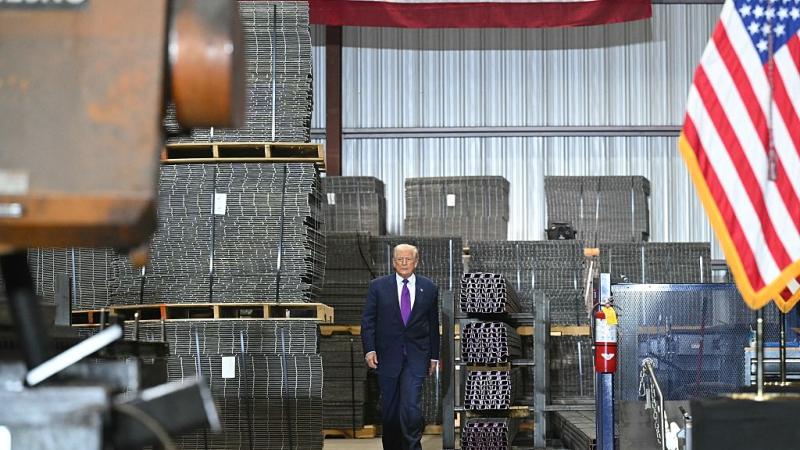Biden blocks mineral mining on 225,000 acres of land, harming EV production needs
"Joe Biden signed an agreement to fund mining projects in Chinese-owned mines in the Congo, where over 40,000 children work as slaves in forced labor and inhumane conditions with no environmental protections," said Rep. Pete Stauber (R-Minn.).
President Joe Biden’s administration says electric vehicle adoption is key to curbing climate change but blocked mining of rare earth minerals on more than 225,000 acres of federal land for more than 20 years.
The Biden administration banned mining near the Boundary Waters on the Duluth Complex in Minnesota, which Twin Metals says contains 95% of the nation’s nickel reserves; 88% of the cobalt; 51% of the platinum; 48% of the palladium, and 34% of the nation’s copper.
Those rare earth minerals are vital for electric vehicle (EV) production and lithium-ion batteries. Without domestic rare earth mineral mining, the nation must rely on countries with few labor or environmental laws, such as the Democratic Republic of Congo, where 75% of the supply of cobalt is mined to make lithium-ion batteries and EVs.
Secretary of the Interior Deb Haaland signed the withdrawal order for 225,504 acres in the Superior National Forest in northeastern Minnesota.
“The Department of the Interior takes seriously our obligations to steward public lands and waters on behalf of all Americans. Protecting a place like Boundary Waters is key to supporting the health of the watershed and its surrounding wildlife, upholding our Tribal trust and treaty responsibilities, and boosting the local recreation economy,” Haaland said in a statement.
Environmentalist groups welcomed the announcement.
"Today's science-based decision is a massive win for Boundary Waters protection," National Chair of the Campaign to Save the Boundary Waters Becky Rom said in a statement. "You don't allow America's most toxic industry next to America’s most popular Wilderness. The Boundary Waters is a paradise of woods and water. It is an ecological marvel, a world-class outdoor destination, and an economic engine for hundreds of businesses and many thousands of people. This decision moves America ever closer to permanently protecting this beloved Wilderness."
The move will likely shutter the proposed Twin Metals mine near Ely. Twin Metals Minnesota said it was “deeply disappointed and stunned” over the decision.
“This region sits on top of one of the world’s largest deposits of critical minerals that are vital in meeting our nation’s goals to transition to a clean energy future, to create American jobs, to strengthen our national security and to bolster domestic supply chains,” the company said in a statement. “We believe our project plays a critical role in addressing all of these priorities, and we remain committed to enforcing Twin Metals’ rights.”
Minnesota Republican Rep. Pete Stauber said the mining ban leaves America reliant on Chinese-owned mines in the Democratic Republic of Congo.
“Not even one month ago, Joe Biden signed an agreement to fund mining projects in Chinese-owned mines in the Congo, where over 40,000 children work as slaves in forced labor and inhumane conditions with no environmental protections,” Stauber said in a statement. “Meanwhile today’s mining ban nullifies a Project Labor Agreement with the local building and construction trade unions. America needs to develop our vast mineral wealth, right here at home, with high-wage, union protected jobs instead of continuing to send American taxpayer dollars to countries like the Congo that use child slave labor.”
The ban follows as Minnesota Democrats holding a political trifecta aim to mandate carbon-free electricity by 2040.
House Committee on Natural Resources Chairman Bruce Westerman, R-Ark, said that America needs to mine rare earth minerals domestically to ensure a future using renewable energy.
“If Democrats were serious about developing renewable energy sources and breaking China's stranglehold on the global market, they would be flinging open the doors to responsible mineral development here in the U.S.,” Westerman said in a statement. “We cannot have a future of renewable energy without minerals, period - not to mention their necessity to our defense systems, satellites, cellphones and virtually every other advanced technology.”














